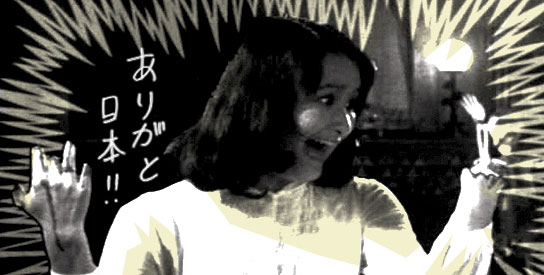 Last week, I interviewed Nadav Rechov, president of Pink Eiga Inc.; as far as I know, the only US DVD company releasing pinku eiga. I’ve already sunk my teeth into a handful of their releases (the first ones I went for were entries from the ridiculous Groper Train series!), and I’m already very impressed. Their release that interested me the most was Daisuke Gotō’s A Lonely Cow Weeps at Dawn – a film with such an odd concept that I could not rest until I watched it. I was finally able to settle down and watch it this weekend. Happily, it did not disappoint and exceeded my already high expectations.
Last week, I interviewed Nadav Rechov, president of Pink Eiga Inc.; as far as I know, the only US DVD company releasing pinku eiga. I’ve already sunk my teeth into a handful of their releases (the first ones I went for were entries from the ridiculous Groper Train series!), and I’m already very impressed. Their release that interested me the most was Daisuke Gotō’s A Lonely Cow Weeps at Dawn – a film with such an odd concept that I could not rest until I watched it. I was finally able to settle down and watch it this weekend. Happily, it did not disappoint and exceeded my already high expectations.
A LONELY COW WEEPS AT DAWN
original title: 痴漢義父 息子の嫁と…
literal translation: Molester Father-in-Law, the Son’s Bride and…
aka: A Cow at Daybreak
aka: Cowshed of Immorality
Japan, 2003, Daisuke Gotō
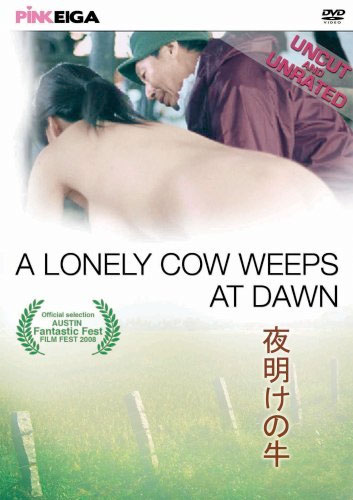
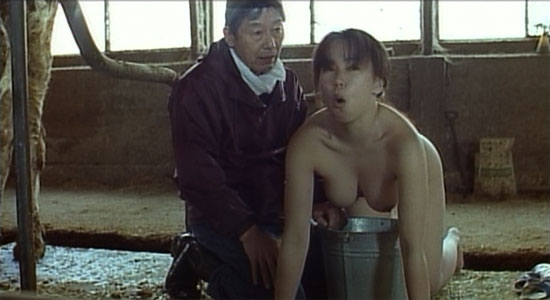
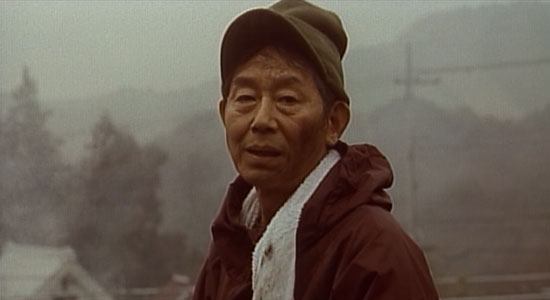
While its story may sound absurd on paper, A Lonely Cow Weeps at Dawn is a well-executed drama, both heartwarming and tragic. Even the sex scenes do not feel forced, and in no way do they feel like an interruption to the film’s plot, which is not the case with many films of this genre. A Lonely Cow Weeps at Dawn is a unique examination of love, old age and family that left me satisfied and a little shocked that an erotic film could be this gentle and considered. Most of the film’s success comes down to Daisuke Gotō’s talents as both a writer and director. It could be said that Gotō’s script is simple, and it is, but rather than spelling everything out for his audience, he is using the camera and his cast to reveal the subtleties of the film’s story. For a film with such a low budget and shot in such a short time frame, A Lonely Cow Weeps at Dawn also looks beautiful. The film’s budgetary restrictions only bring the film closer to earth lending a realism impossible to achieve on a Hollywood-sized budget.
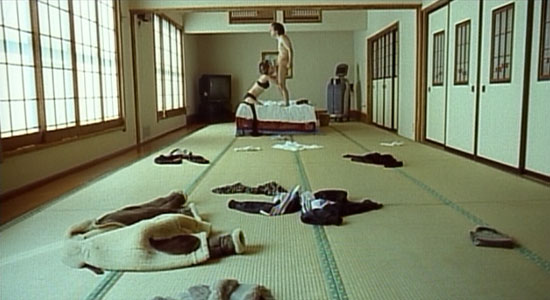
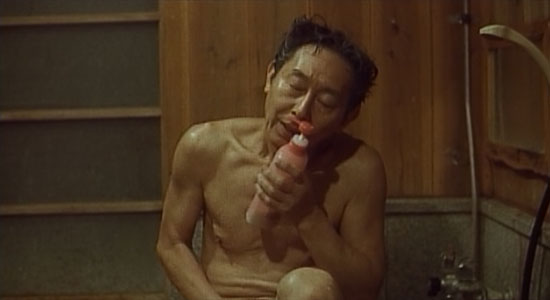
A Lonely Cow Weeps at Dawn, luckily, has a wonderful cast to support Gotō’s intentions. Gotō gives the actors an excellent script to work with, and they do not waste any opportunities. Ryōko Asagi is brilliant as Noriko. She hits all the right notes and somehow manages to make a “moo” sound seem poignant and soulful! Yumeka Sasaki’s screen time is limited, but she brings an enormous amount of energy to the film. Seiji Nakamitsu is perfectly cast as the film’s antagonist, Hajime. Hajime may be a sickening rapist, but Gotō and Nakamitsu give him enough personality to move him beyond a cardboard cutout villain. And lastly, there’s Hōryū Nakamura, a very unconventional leading man. Nakamura is absolutely fantastic as the likable Shukichi and is without a doubt the best thing about A Lonely Cow Weeps at Dawn. Sadly, Nakamura passed away some years ago at a far-too-young 67.
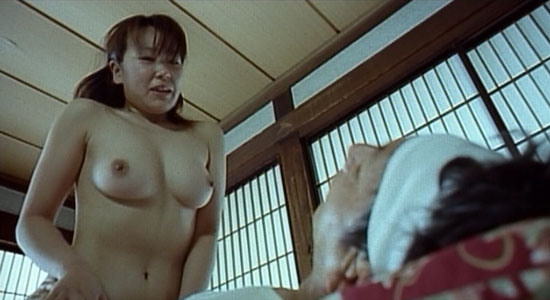
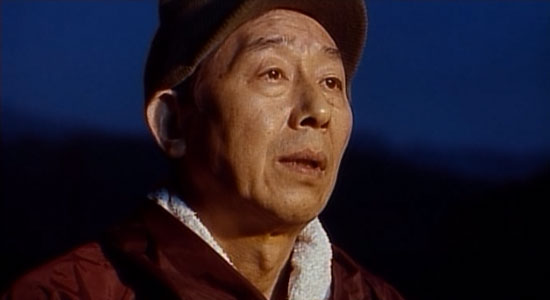
I’m not pink expert by any stretch of the imagination, but I can comfortably say this is the most impressed I’ve been with a post-2000 pink film. It may even be one of the finest pink films I’ve seen, no matter what decade we’re talking about. A Lonely Cow Weeps at Dawn is a quiet film indeed, but a very, very good one.
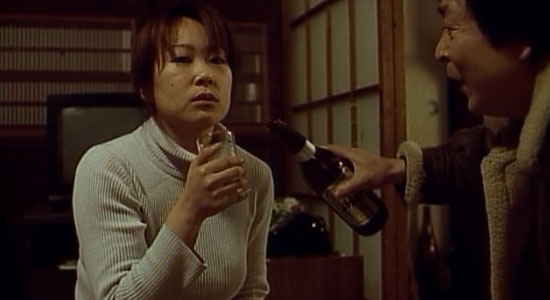
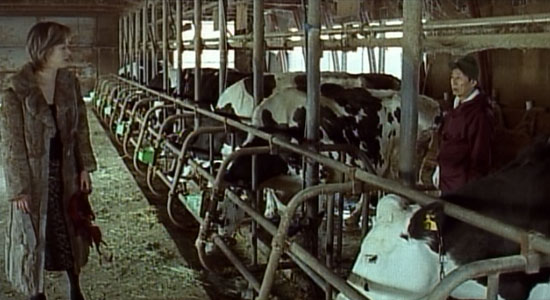
A Lonely Cow Weeps at Dawn is available from Pink Eiga and while I don’t generally review DVDs on Mondo Exploito, I’ll finish this article up with a quick summary of Pink Eiga’s release of this great film. If you are planning on purchasing A Lonely Cow Weeps at Dawn from Pink Eiga, you must keep in mind the source material they have to work with. The video is non-anamorphic and not exactly a stunning print. Once you get past these minor issues, you’ll find that the video is very much watchable and, for some, its scruffiness may even add to its homely effect. Similarly, the audio won’t melt your eardrums, but it is perfectly serviceable. Pink Eiga have been kind enough to pack the DVD full of interesting extras. Most insightful is an interview with director, Daisuke Gotō. I highly recommend grabbing a copy of this disc (or renting the film on VOD) – you’re supporting an excellent film and an excellent distributor.





1 comment
Semen Demon (2005) | MONDO EXPLOITO says:
Dec 9, 2012
[…] duo are sweaty, drooling perfection, but it’s the ladies that steal the show. Yumeka Sasaki (A Lonely Cow Weeps at Dawn, Anarchy in [Ja]Panty) has a small role as a prostitute and, even with limited screen time, she […]